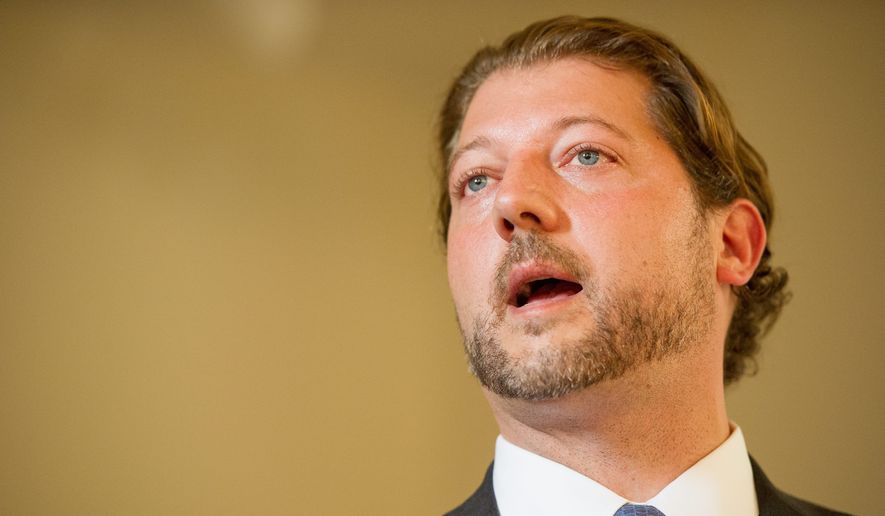The D.C. Council on Tuesday enacted emergency legislation to allow students to receive medical marijuana at their elementary or high school and approved a bill to ban e-cigarettes amid ever-increasing reports of vaping-related illnesses and deaths around the country.
Council member David Grosso introduced the emergency legislation to authorize primary and secondary school students participating in the District’s medical marijuana program to receive their medication at school.
“No student should have to choose between attending school or receiving effective treatment for a medical condition,” said Mr. Grosso, at-large independent.
Current law restricts the use of medical marijuana to residents or to a medical treatment facility. Many schools don’t have such facilities and therefore do not allow students to use the medication at school.
The legislation allows medical marijuana to be treated like any other medication in schools and be administered in the nurse’s office.
Nearly all of the council’s 13 members voted to enact the emergency bill, with only Trayon White, Ward 8 Democrat, voting “present.”
Emergency legislation takes effect immediately without the mayor’s signature and remains in effect for 90 days.
The council also approved temporary legislation on the issue that bypasses committee assignment and will receive a second vote from lawmakers. It must be signed by the mayor and approved by Congress, and remains in effect for no more than 225 days.
In addition, council members Mary Cheh and Vincent Gray each introduced legislation aimed at preventing further addiction of nicotine in the District.
“What I am most concerned about is that we are quite literally watching a new generation of young people get hooked on nicotine through vaping,” Mr. Gray, Ward 7 Democrat, said as he introduced the Prohibition of Electronic Smoking Sales Without a Prescription Act of 2019.
His legislation would require that electronic cigarettes and vaping products be sold in pharmacies only to persons with a prescription to use them.
Mrs. Cheh’s bill — the Flavored Electronic Smoking Device Prohibition Amendment Act of 2019 — would prohibit the sale or distribution of any flavored electronic smoking devices and products.
“Over the past few years, e-cigarette use has exploded among young people and continues to rise at an exponential pace,” Ms. Cheh, Ward 3 Democrat, said in a statement. “The e-cigarette industry has built this youth market by targeting children through advertising and widely available flavored products — taking a note from the playbook of the closely-aligned tobacco industry.”
Mr. Gray said that as chairman of the Health Committee, he would hold a hearing on both pieces of e-cigarette legislation.
Meanwhile, the lawmakers voted almost unanimously to approve the Subpoena Enforcement Resolution of 2019. It authorizes the council’s general counsel to file a petition in D.C. Superior Court to compel witnesses under penalty of contempt to comply with subpoenas from the law firm investigating council member Jack Evans.
Mr. Evans, Ward 2 Democrat, was the only member to vote against the resolution, citing his previous opposition to the probe.
Council Chairman Phil Mendelson, at-large Democrat, said Monday that only one of six people who have received subpoenas is complying in the council’s code of conduct investigation. He said Tuesday that more interviews have been scheduled.
Council member Elissa Silverman, at-large independent, raised concern that the law firm tasked with conducting the probe, O’Melveny & Myers, wasn’t interviewing enough people, given the number of documents being reviewed (more than 100,000) and the scope of the investigation (from 2014 to the present).
Mr. Mendelson said he had spoken with the law firm and is confident its probe will be thorough.
He said he will announce who will serve on the ad hoc committee to review the investigation at the council’s Oct. 8 meeting.
• Sophie Kaplan can be reached at skaplan@washingtontimes.com.




Please read our comment policy before commenting.